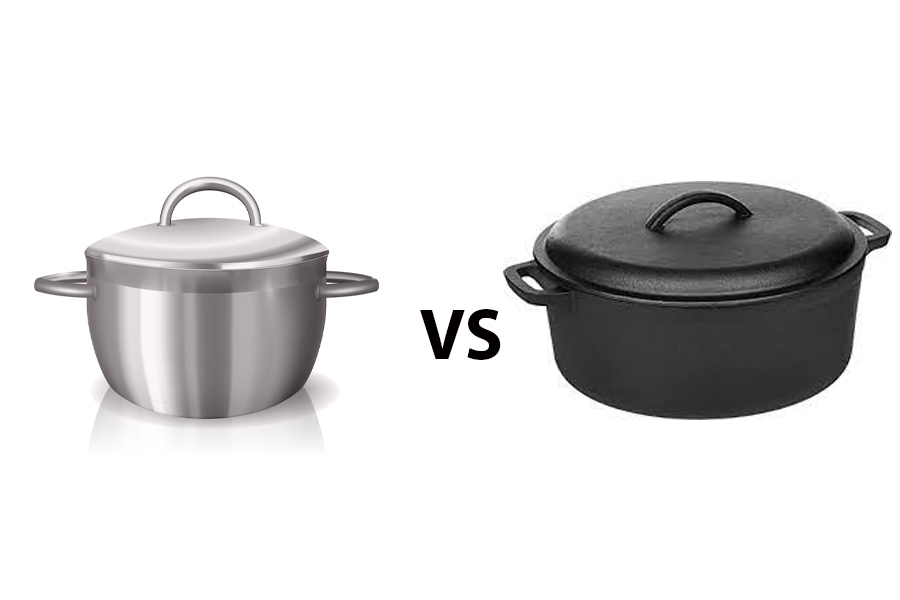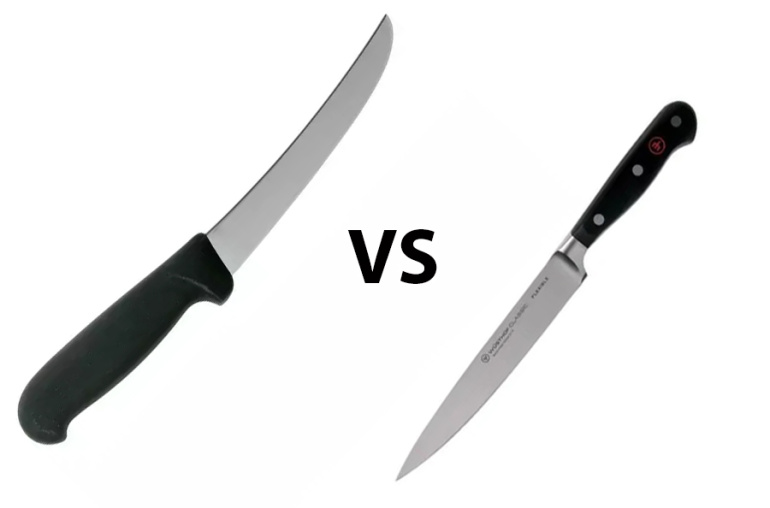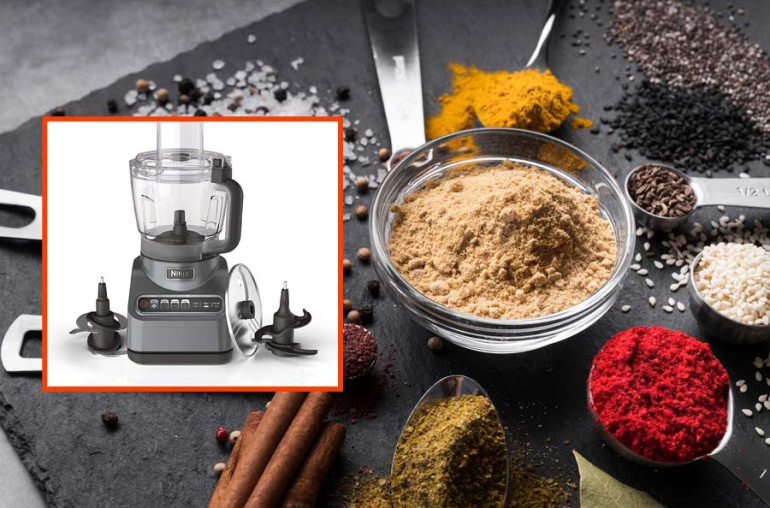Dutch ovens are a type of tool that is helpful for every kitchen. One of the primary benefits is that you can cook big stews for your loved ones for the coming long winter and you can serve them up over a couple of days. Moreover, you can also freeze them for a long time if you don’t have time to cook a meal.
We can see it has so many benefits but when it comes to buying one, the important question that comes to our mind is which one to buy. Should you buy a stainless steel one or a cast iron one? To shed light on this question, we are going to find the differences between Dutch oven stainless steel vs cast iron.
Contents
Key Differences Between Dutch Oven Stainless Steel vs Cast Iron
Here we will be looking at the key differences that set each other apart making you understand which is better for you. So let’s look into the differences-
The ability of heat retention
To put it simply, cast iron is an excellent heat conductor, surpassing stainless steel. In contrast to stainless steel, cast iron retains heat for a long period, making it ideal for slow cooking.
Stews and braises, which benefit from a low and slow cooking method, may benefit from this. When heated, stainless steel heats up swiftly and uniformly throughout its whole surface, but it doesn’t keep its heat for very long.
Non-stick ability
When it comes to nonstick ability, both have different outputs. Let us look at the differences-
Stainless steel
A lot of us would like not to constantly use a lot of oil and butter, yet stainless steel pans tend to stick unless you use a lot of both. That’s why nonstick pans are so common, although you’ll probably have to replace them after a few uses.
However, most stainless steel dutch ovens do not have non-stick coatings and should be treated as bare metal. They are pure, unprocessed stainless steel. They will last a long time but will be a pain to keep clean.
Cast iron
However, cast iron requires seasoning, which coats the metal with oil and prevents food from adhering at all times. Unlike stainless steel, which is so polished that oil burns and runs off regularly, olive oil stays put on a wooden surface, and you develop a habit of keeping it clean.
Durability and longevity
Cast iron, when maintained correctly, may survive for years. It is also rust-resistant, making it a good choice for use in wet environments. Stainless steel is similarly hardy, although it may be damaged by scratches and dents with regular usage.
Performance in cooking
Cast iron is a great choice for the kitchen since it is tough, heats evenly, and keeps its heat for a long time. In contrast, food tends to cling less to stainless steel. Because of this, delicate foods like egg dishes and fish fillets are safer when cooked in stainless steel.
Price
Cast iron is often more costly than stainless steel, but its longevity and resistance to rust make it an attractive option if you can afford it. For consumers on a tighter budget, stainless steel may be the preferable option because of its lower cost and low maintenance requirements.
Weight of the product
The difference in weight is the final point to consider. Dutch ovens constructed of cast iron are quite hefty since the material is thick and heavy. Even small ones are quite heavy when it’s full, requiring both of my hands to carry them. This is a drawback, but it also means that the heat is kept in for a very long time.
Important Details on Stainless Steel Dutch Oven
Stainless steel’s 11 percent chromium concentration is its distinguishing characteristic of a stainless steel dutch oven. Notably, stainless steel can only have a maximum carbon concentration of 1.2 percent.
So, it’s safe to assume that you may expect to pay a bit more for stainless steel cookware since its production takes a little longer. Cookware, cutlery, medical tools, and major appliances are typical examples of the kinds of consumer goods that include stainless steel, for example, washing machines.
Important Details on Cast Iron Dutch Oven
Although it is generally believed that Dutch ovens have been in use since the early 18th century, cast iron has a far longer and more varied history. The Dutch oven is simply the most well-known cooking appliance made from cast iron. In reality, the invention of cast iron may be traced back to the late 7th century, or, more precisely, to about the year 680.
We know, for instance, that cast-iron kettles were in use in England at about this time. Some examples of contemporary cast-iron cookware include sandwich presses, waffle and crepe irons, dutch ovens, deep fryers, Tetsubin, woks, Potjies, karahis, flat top grills, and griddles. That’s a big variation.
Cast iron is distinguished by its high carbon content (above 2%). Creating cast-iron items, including cookware, is significantly cheaper and faster than producing other products like stainless steel due to cast iron’s low melting temperature. Steel often refers to iron-based alloys having a carbon content of 2% or less.
Which Materials Are Best Used For A Dutch Oven?
Which material is ideal for a dutch oven is a matter of personal opinion. Ovens made of cast iron are the best choice for those who require their oven to keep the heat for long periods, while ovens made of stainless steel are the best choice for those who want a cheap and low-maintenance alternative.
Final Verdict
There are benefits and drawbacks to both stainless steel vs cast iron dutch ovens. Ovens made of cast iron are the best choice for those who need their oven to keep the heat for lengthy periods, while ovens made of stainless steel are the best choice for those who want a cheap and low-maintenance alternative.
Enamel-coated cast-iron cookware is also safe to use and may reduce iron leaching into meals. In the end, it’s advisable to weigh all of your options before settling on a particular dutch oven material.
I live in New York, United States. I did my graduation the City University of New York. Now I am a housewife. I am passionate about cooking and I also specialize in cookware and kitchen appliances. I have 6 years more of experience with cookware and kitchen appliances product review. If you have any queries about cookware and kitchen appliances you can easily contact us.





